MS70 vs MS69: Understanding the Key Differences in Coin Grading
Curious about MS70 vs MS69? Simply put, MS70 coins are flawless, while MS69 coins have minor imperfections. This affects their value and appeal to collectors. In this article, we'll explore how these differences impact your collection. Coin grading assesses...
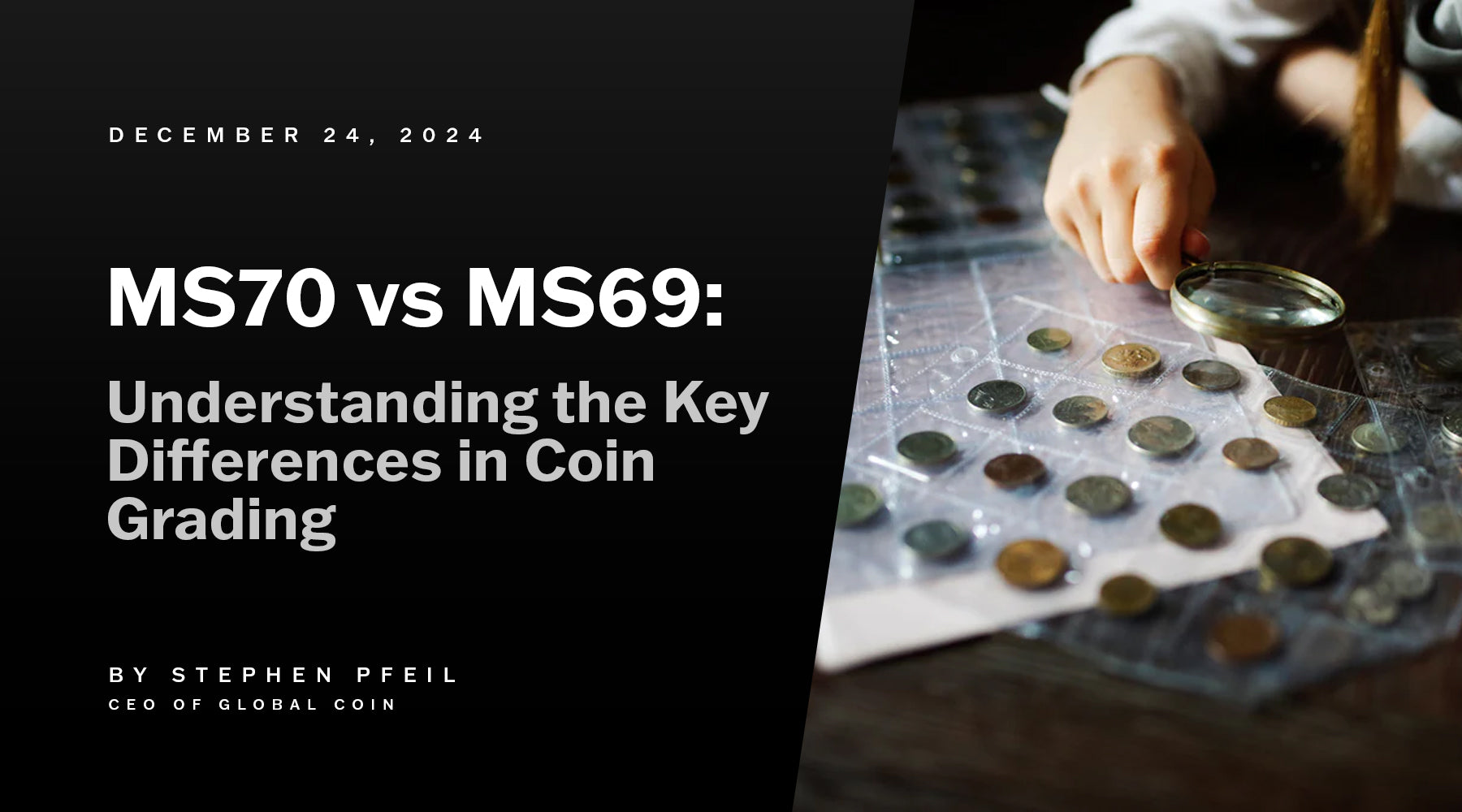
Curious about MS70 vs MS69? Simply put, MS70 coins are flawless, while MS69 coins have minor imperfections. This affects their value and appeal to collectors. In this article, we'll explore how these differences impact your collection.
-
Coin grading assesses a coin's condition on a 70-point scale, with MS70 being flawless and MS69 having minor imperfections.
-
MS70 coins are highly sought after and command higher market values due to their perfection, while MS69 coins offer a more affordable yet high-quality option.
-
Grading companies like PCGS and NGC provide standardized assessments, ensuring trust and consistency in coin pricing and evaluation.
What is Coin Grading?
Coin grading is the meticulous process of evaluating a coin's condition and assigning it a grade based on its attractive overall quality and historical significance. This practice allows collectors to accurately determine the value of their coins, facilitating informed buying and selling decisions. Consider it similar to the difference between buying a house based on a quick glance versus having a detailed home inspection report. A coin graded properly can significantly impact its market value.
Grading companies play a pivotal role in this process. They provide an independent, standardized assessment of a coin's condition, which helps maintain consistency and trust in the market. Each coin, even those with the same grade, can have unique characteristics that influence its desirability and market value, making a grading company essential for collectors.
Whether dealing with raw coins or slabbed coins, grasping the nuances of coin grading is essential. It's a blend of art and science that transforms a seemingly simple hobby into a sophisticated and rewarding pursuit. The word liberty often appears on coins, serving as a key detail in assessing their condition and authenticity.
The MS Scale Explained

The Mint State (MS) grading scale is a 70-point scale used to evaluate brilliant uncirculated coins that appear as they did when they were first minted, with no signs of circulation. This scale ranges from MS60, indicating a coin with significant moderately heavy marks and a weak strike, to MS70, which denotes a coin of perfection. Each higher grade or lower grade within this scale reflects varying levels of strike quality, original luster, and the presence of several small contact marks or large detracting contact marks.
Very few examples, an MS60 coin might have noticeable imperfections and a lackluster appearance, while an MS70 coin is flawless, with no visible flaws even under magnification. The grading process involves an in-depth examination of several factors, including light wear, slightly dull, original mint luster typify, and overall visual appeal.
The MS scale is key for evaluating perfect uncirculated coins, setting a standard for grading. Similar to how art connoisseurs appraise a painting, noting every brushstroke and detail. In the world of coin collecting, even the tiniest flaw can make a significant difference in a coin's grade and value. Additionally, the original mint luster remains, further enhancing the coin's appeal and worth.
Defining MS70
Achieving an MS70 grade is akin to finding the Holy Grail for coin collectors. This grade signifies a coin in perfect condition with no visible imperfections, even under magnification. It's the pinnacle of coin grading, representing a flawless specimen that appears as if it were just minted.
The implications of a coin being graded MS70 are profound. Not only does it command a higher market value, but it also holds immense desirability among collectors. Owning an MS70 coin is a testament to the highest standards of minting and preservation, making it a prized possession for any serious collector.
Understanding MS69
An MS69 coin, while nearly perfect, falls just short of the flawless MS70 grade. These copper coins are distinguished by one or two minor imperfections that are typically only noticeable upon close examination. These tiny flaws, such as hairline scratches, are the fairy dander that keeps this coin's surface coins from reaching the highest echelon.
Despite these minor imperfections, MS69 coins collecting are still fully struck and possess great detail. To the naked pleasing eye appeal, they often appear as stunning as their MS70 counterparts, but under the scrutiny of expert grading, the subtle differences become apparent.
Key Differences Between MS70 and MS69

The real difference between MS70 and MS69 coins lies in their imperfections. An MS70 coin is flawless, with no visible marks, scratches, or wear, representing the highest quality in sharp strike and average luster. On the other hand, an MS69 coin, while nearly perfect, has minor, barely visible flaws, such as tiny hairline scratches.
Grading standard organizations like PCGS and NGC define MS69 coins as being virtually fully struck but with minute imperfections that prevent them from achieving the top grade. These minor defects, though often imperceptible to the casual observer, make a significant difference in the grading process for PCGS graded coins.
Recognizing these distinctions is vital for both collectors and investors. While both higher and lower grades represent high-quality copper coins, the MS70's perfection often commands a higher premium in the market. Additionally, MS70 and MS69 coins are classified as "Superb Gem Uncirculated", a term denoting coins of exceptional quality with minimal to no imperfections.
The Impact on Value and Price
An MS70 coin typically holds a significantly higher value than an MS69, reflecting greater demand for perfect specimens. Collectors are often willing to pay a premium for MS70 coins due to their flawless status and perceived higher market value. It's akin to paying extra for a first edition book in mint condition versus a slightly worn copy.
The perceived rarity and allure of owning a perfect coin drive the increased demand for MS70 coins. MS70 coins are seen as better at maintaining their value over time, making them a more attractive investment. However, the rarity of a coin, regardless of its higher or lower grade, can also influence its value.
MS69 coins offer a more affordable option for budget-conscious collectors without sacrificing much in quality. These coins provide an excellent balance between quality and cost, allowing collectors to build impressive collections at the same price without the high premium associated with MS70 coins.
The American Numismatic Association acknowledges the worth of MS69 coins, making them a popular choice among collectors. These coins offer near-perfect quality at least half the price of higher-graded options, providing an excellent balance between value and affordability.
Why Collectors Prefer MS70

Many collectors, including a coin collector, are drawn to MS70 coins due to the perception of owning a flawless specimen. The lack of any wear or imperfections makes these other coins particularly appealing for display, contributing to their desirability. It's like framing a perfect piece of art – the beauty lies in its unblemished state.
Additionally, MS70 coins often hold a higher resale value, which can be a strong incentive for collectors looking to invest. The prestige of owning a coin in perfect mint state is a significant draw, making MS70 coins highly sought after in the numismatic community.
When MS69 is a Better Choice
Although MS70 coins are highly coveted, MS69 coins can be a better choice for collectors looking to save money. These coins are nearly perfect coins and still possess a high level of detail and quality, making them a practical and attractive option for many collectors.
For budget-conscious collectors or those building a collection without high premiums, MS69 coins provide an excellent balance between cost and quality. They allow collectors to enjoy high-grade coins without breaking the bank.
The Role of Grading Companies

Companies like PCGS and NGC have standardized coin grading over the past forty years. Before their establishment, coin grading was inconsistent and often based on subjective assessments. These companies revolutionized the market by providing encapsulation and certification, ensuring a reliable and standardized evaluation of each select uncirculated coin's condition.
The grading process involves professional services that assess a coin's condition based on the Sheldon Scale, which ranges from 1 to 70. This scale helps maintain consistency and trust in the market, allowing collectors and investors to buy and sell with confidence, including understanding coin grades.
Grading tiers are designed to accommodate coins of varying values, allowing collectors to choose the appropriate service level for their submissions. This structured system ensures that both circulated coins and high-value pieces receive the necessary attention. The Sheldon Grading Scale plays a crucial role in this process, offering a standardized method to evaluate a coin's condition. Additionally, coins that show absolutely no trace of wear or damage are graded with the highest precision, ensuring their authenticity and value are accurately represented.
How to Submit Coins for Grading

Submitting coins for grading requires a few straightforward steps. First, you need to create an account on the grading service's website. Once registered, you can submit your coins submitted by properly packaging them in individual holders and shipping them in a secure, padded box to prevent damage during transit.
Each received coin is assigned a unique tracking number, allowing you to monitor its status throughout the grading process. This system ensures that both your graded coins and raw coins are securely processed and thoroughly evaluated. With features like peripheral lettering, every detail of your coin is carefully examined, providing you with peace of mind and a reliable assessment of its condition.
Common Misconceptions About Coin Grading
Several common misconceptions about coin grading need addressing. Many believe buying certified coins guarantees protection against overpaying, but unscrupulous coin dealers can still charge high prices. It's essential to be aware of market values and dealer credibility. Additionally, a coin worn flat due to extensive circulation may still hold value, but grading becomes more challenging. Being informed about these factors helps collectors make smarter purchasing decisions.
Another misconception is that slabbed coins are safer investments, but certification doesn't protect against market volatility. Population reports from grading companies may not accurately reflect the true number of coins, as coins are often resubmitted for higher surface features.
Despite grading services asserting consistent criteria, grading standards are perceived to have loosened over time. It's crucial for collectors to stay informed and critical of these evolving standards to make better investment decisions.
Why Global Coin is Your Trusted Partner for MS70 and MS69 Investments
When it comes to coin grading, the distinction between MS70 and MS69 coins is more than just technical—it directly impacts the value and desirability of your collection. At Global Coin, we offer unparalleled expertise and exclusive access to rare, high-quality modern coins, empowering you to make informed decisions about your collection. Through our proprietary GCS Index—a meticulous system that evaluates coins based on condition, rarity, and historical significance—we ensure you're investing in assets that carry intrinsic value and have the potential for long-term appreciation. Looking for an upcoming blog post detailing the GCS Index in early 2025. Unlike commoditized options that can be price-shopped, Global Coin curates a unique inventory that combines expertise, trust, and privilege, ensuring each addition to your portfolio is both meaningful and valuable. Whether you're seeking the perfection of an MS70 or the exceptional value of an MS69, our commitment to quality and integrity makes us the trusted partner for serious collectors and investors.
Understanding the differences between MS70 and MS69 coin grades is crucial for collectors and investors. MS70 coins, with their flawless condition, command higher premiums and are highly sought after by collectors. Meanwhile, MS69 coins, despite their minor imperfections, offer an excellent balance between quality and cost.
Grading companies like PCGS and NGC play a vital role in maintaining the integrity and consistency of coin grading. Whether you're a seasoned collector or just starting, appreciating the nuances of coin grading can enhance your collecting experience and help you make more informed decisions.
Frequently Asked Questions
What does an MS70 grade mean?
An MS70 grade means the coin is in flawless condition with no visible flaws, even when you zoom in. It's the top tier for coin quality!
How does an MS69 coin differ from an MS70 coin?
An MS69 coin is super close to perfection with just minor flaws, while an MS70 is flawless with no imperfections at all. So, if you're aiming for the best, go for the MS70!
Why do MS70 coins command higher prices than MS69 coins?
MS70 coins are seen as perfect, which makes them more desirable and valuable than MS69 coins. This perfection drives up demand and prices.
How do grading companies like PCGS and NGC ensure consistency in their grading?
Grading companies like PCGS and NGC stick to the Sheldon Scale and have professional services in place to keep their evaluations consistent. This way, you can trust that your coins are being graded reliably every time.
Is it worth submitting coins for grading?
Absolutely, submitting coins for grading can boost their market value and give you peace of mind with a reliable condition assessment. It's a smart move if you're serious about collecting!
Related Articles
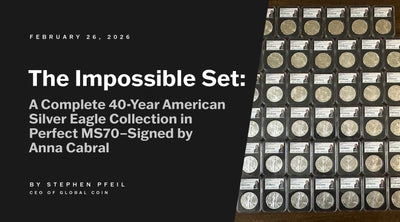
I'm Stephen Pfeil, founder of Global Coin, and today I'm sharing something that, by all rights, ...
Discover More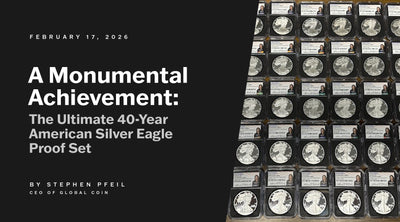
A Monumental Achievement: The Ultimate 40-Year American Silver Eagle Proof Set
I'm Stephen Pfeil, founder of Global Coin, and today I have the privilege of sharing an extraord...
Discover More
What It Would Take for Me to Sell My Coins
People assume that if the price is right, everything is for sale. I understand why. We live in a ...
Discover More

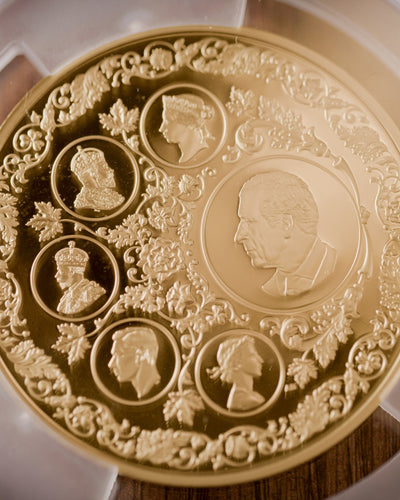
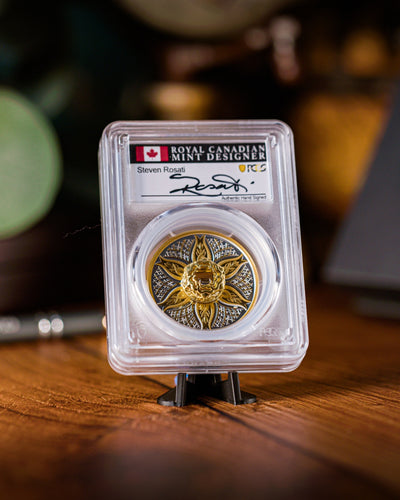
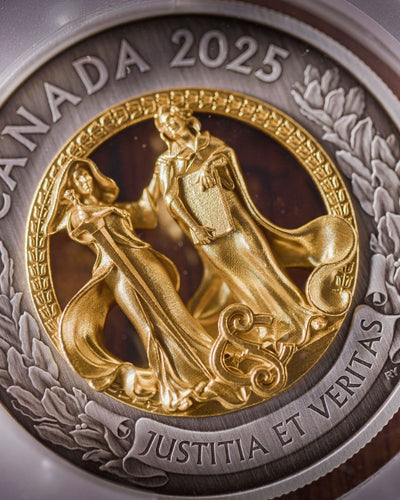
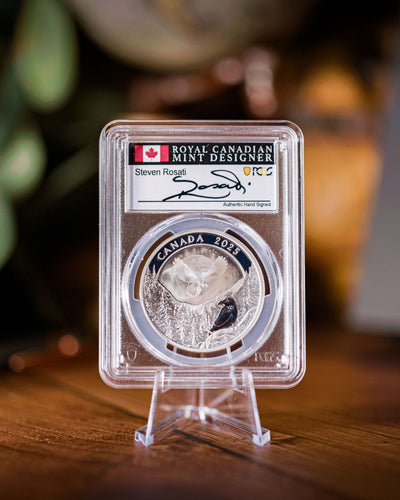
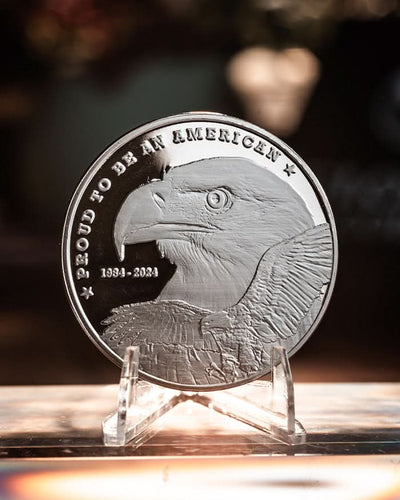
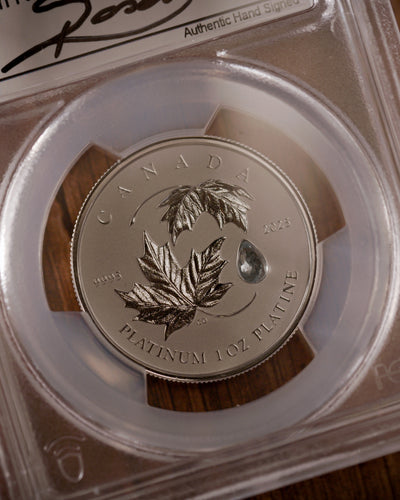

Leave a comment
This site is protected by hCaptcha and the hCaptcha Privacy Policy and Terms of Service apply.